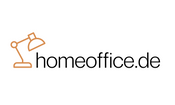Security first: this is how you protect your data in the home office
The recent corona pandemic has forced many of us to work from home. What many forget: Those who work remotely from home or on the go are particularly vulnerable to security risks lurking behind the screen.
The problem with this: At home you work outside of your protected company network. Even if your company provides VPN (Virtual Private Network) access, your computer (and the data stored on it) can be at risk if a hacker attacks your WiFi network at home. In this article, we'll show you the biggest security risks and how you can best avoid them.
Security risks in the home office: data at risk
There are many security risks, especially when working remotely, for which you should be prepared.
Email Fraud
Many scammers send phishing emails with the intent to steal sensitive information from the recipient or the company. Especially in special times like these, these “phishers” hope to be successful quickly and easily. For example, they are posing as someone from the company in order to abuse your trust. In the home office in particular, it is often easy prey because it is more difficult to check whether the email is real or fake.
Vulnerabilities in WLAN
While you and your colleagues are working from home, everyone is using their private internet.
This increases the risk of data leaks. Third parties could intercept and access sensitive e-mails, passwords and messages. With unsecured or poorly protected WiFi networks, there is also the risk that other people in your vicinity can access data that is not intended for them.
Be careful when using your own devices
Are you one of those people who also use private devices such as laptops or smartphones for work? It is also useful if you can take part in an online conference on your own mobile phone when you are out and about. Unfortunately, private devices are often not as well protected as the devices your employer makes available to you. In the end, you are jointly responsible for this security risk if sensitive information is stolen from your device.
Access to the camera
As a rule, this threat affects your privacy more than your company's data: It is known that there are repeated attacks by hackers on webcams. You should also protect yourself against this.
To ensure your safety, there are practical camera covers.
Use the latest updates
Operating system updates usually close important security loopholes. The following also applies in the home office: Always keep your systems up to date - unless the employer has reasons why updates should not be installed - for example, if certain programs have problems with compatibility.
This is how you secure your digital home office
So what steps can you take to protect yourself - and your business - when working from home? We recommend the following steps.
Implement two-factor authentication
Two-factor authentication only grants access to the device and all software after an employee has identified himself with more than one device or account. You know this from online banking: The security code that you receive as an SMS after you have entered the password is the extra security when logging in. Such solutions are also available for companies. If you are an employer and your company processes sensitive data in the home office, you should consider this.
Use strong passwords
Believe it or not, the most commonly used passwords are still “12345678”, “Password” and similar obvious codes. Better to use a password manager or at least make sure that your password is not too short and contains special characters, numbers, upper and lower case letters, etc.
Encrypt your data
Data encryption helps protect sensitive information by translating data into a code that only people within your company can access via a secret key or password. Even if fraudsters intercept the data, they will not be able to "translate" it properly. This applies to all messages or information that you send, receive or save on your devices. There are numerous providers who offer solutions for encrypting your data.
Get antivirus software
Especially if you also use your private laptop or smartphone for work, you should definitely buy and install anti-virus software. Even free solutions from reputable providers are better than not having any virus protection installed at all.
Cover up your camera when you don't need it
If you don't want a stranger looking into your home, you should cover your camera when it's not needed. There is a simple but practical solution: the webcam cover, which you can quickly close and open.
In case of doubt you are liable
If you have agreed a disclaimer of liability with your employer for the professional use of your private devices, you are usually on the safe side if data is stolen. However, if you use a private device without having officially agreed this with your employer, you can also be held liable for the consequences. Therefore, you should definitely clarify what is allowed in your company before you use private devices in your home office for work.










